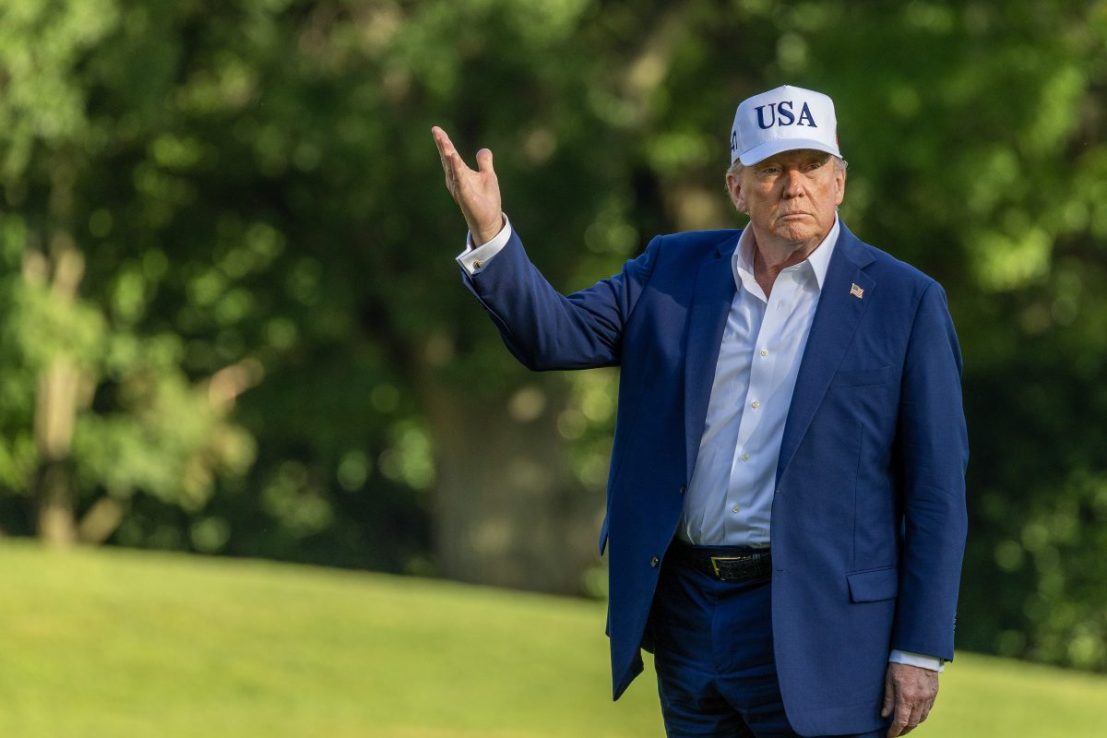
President Donald Trump filed a lawsuit on Friday against The Wall Street Journal and media mogul Rupert Murdoch, a day after the newspaper published a story reporting on ties to wealthy financier Jeffrey Epstein.
The lawsuit was filed in federal court in Miami. It seeks at least $10bn (£7.4bn) in damages.
Mr Trump promised a lawsuit after the newspaper described a sexually suggestive letter that the newspaper says bore Mr Trump’s name and was included in a 2003 album for Epstein’s 50th birthday.
The president denied writing the letter, calling the story “false, malicious, and defamatory”.
The letter was reportedly collected by disgraced British socialite Ghislaine Maxwell as part of a birthday album for Epstein years before he was first arrested in 2006 and subsequently had a falling-out with Mr Trump.
The letter bearing Mr Trump’s name includes text framed by the outline of what appears to be a hand-drawn naked woman and ends with, “Happy Birthday — and may every day be another wonderful secret,” according to the newspaper.
The outlet described the contents of the letter but did not publish a photo showing it entirely or provide details on how it came to learn about it.
It comes after the US Justice Department asked a federal court to unseal grand jury transcripts in Epstein’s case at the direction of Mr Trump amid a firestorm over the administration’s handling of records related to the case.
Deputy attorney general Todd Blanche filed motions urging the court to unseal the Epstein transcripts as well as those in the case against Maxwell, who was convicted of luring teenage girls to be sexually abused by Epstein.
Epstein killed himself in 2019 shortly after his arrest while awaiting trial.
The Justice Department’s announcement that it would not be making public any more Epstein files enraged parts of Mr Trump’s base, in part because members of his own administration had hyped the expected release and stoked conspiracies around the well-connected financier.
The Justice Department said in the court filings that it will work with prosecutors in New York to make appropriate redactions of victim-related information and other personally identifying information before transcripts are released.
“Transparency in this process will not be at the expense of our obligation under the law to protect victims,” Mr Blanche wrote.
But despite the new push to release the grand jury transcripts, the administration has not announced plans to reverse course and release other evidence in its possession.
Attorney general Pam Bondi had hyped the release of additional materials after the initial Epstein files disclosure in February sparked outrage because it contained no new revelations.
A judge would have to approve the release of the grand jury transcripts, and it is likely to be a lengthy process to decide what can become public and to make redactions to protect sensitive witness and victim information.
The records would show testimony from witnesses and other evidence presented by the prosecution during the secret grand jury proceedings, when a panel decides whether there is enough evidence to bring an indictment, or a formal criminal charge.
Associated Press







